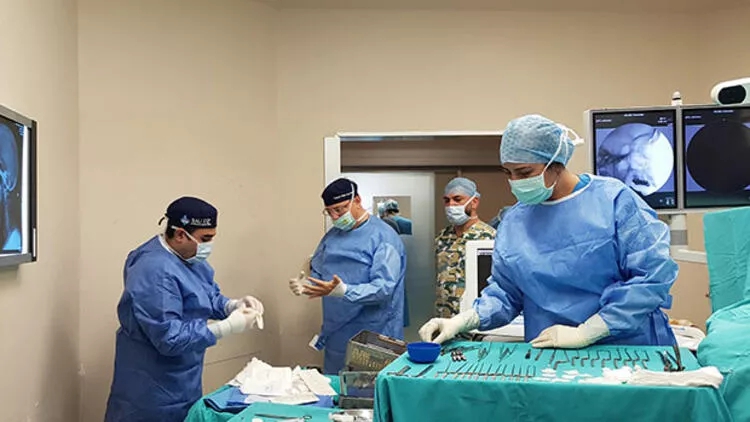With advancing technology and the integration of these devices into operating rooms, brain surgery is no longer performed solely under a microscope. Patients can undergo MR scans without being awakened, and surgeries can be performed while controlling the patient's speech or movement centers through brain mapping. Thanks to the new generation of "hybrid" operating rooms, surgeries that used to take 8-10 hours can now be completed in just a few hours.
Prof. Dr. Türker Kılıç explained that personalized surgery can now be performed with the entry of technology into the operating room in the last 5-6 years. He said, "With the multidisciplinary approach in brain surgery and the rapid advancement of technology in the last 10 years, the concept of the operating room has changed. Previously, our aim was only to remove the foreign tissue in the easiest way possible in tumors. However, the anatomical, biological and physiological guided surgical system currently allows us to perform more successful, faster, functional, and biologically more qualified surgeries than before. So, the operating room is no longer just a place where we enter with a microscope and remove the tumor. It has become personalized surgical spaces where we can use endoscopes, perform angiograms, apply gamma knife, take MRIs, or insert stents through the vascular groin and apply all these techniques simultaneously."
Pointing out that these new generation operating rooms are called "hybrid operating rooms," Prof. Dr. Kılıç said, "We can use not only navigation but also MRI during surgery. Thus, we can follow the patient's anatomical changes at that moment. Technological opportunities have shortened the duration, but in some surgeries, the quality, benefit, and nature of the work have actually increased the duration. For example, we can continue the operation according to the results of the genetic and molecular structure of the tumor immediately after removing the tissue. It was not possible to do these things before. Sometimes second or third surgeries were necessary."
Most Accurate Surgical Method with Brain Mapping
Prof. Dr. Kılıç explained that they have the opportunity to closely monitor brain function during surgery by using physiological guidance systems. They are able to perform brain mapping by waking the patient up and mapping the speech center or mapping the movement center without waking them up. Just a moment ago, they performed surgery on a patient with a pituitary adenoma that secretes growth hormone. Previously, they used to perform this procedure by making an incision through the nose or a large incision in the skull to access the brain. Now they can remove the tumor by just entering through the nose. This is because they can take an MRI during the surgery or advance the surgery according to the quality of the tissue. They can use not only a microscope, but also endoscopy. These approaches in surgery provide us with greater reliability, shorter duration, and greater ease of treatment for the patient.
Many tests can be performed while the patient is asleep
Speaking about the technology that requires specific expertise, Prof. Dr. Kılıç continued, "The entire system needs to consist of compatible devices. After removing the pituitary adenoma in our patient, we immediately took them to the operating room MRI without waking them up and checked whether we had removed the entire tissue. If there had been a remaining piece, we would have continued the surgery until we completely removed the tissue because the patient had not yet awakened. Sometimes, there may be tumor remnants in risky areas, such as those that adhere to the carotid artery. In such cases, we take an MRI and directly transfer the patient to gamma knife after the operation. Personalized surgery refers to surgery specific to the tumor or that specific anatomy. We can perform many tests while the patient is asleep, such as MRI and angiography. If a change is needed, we can do it immediately."

